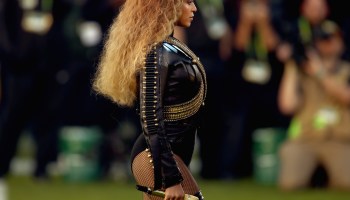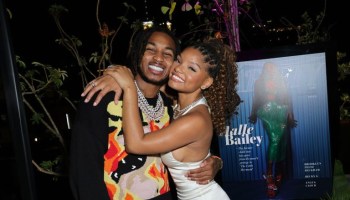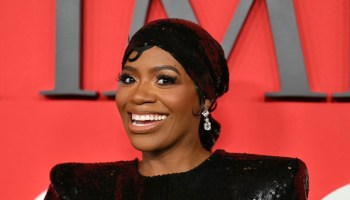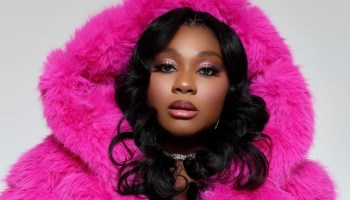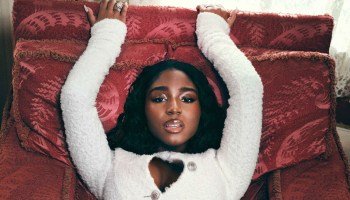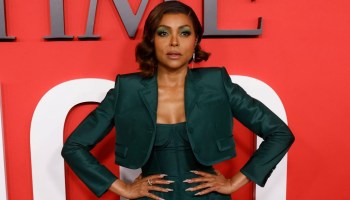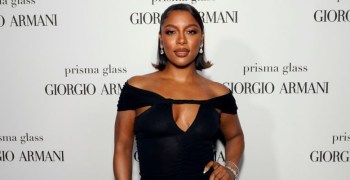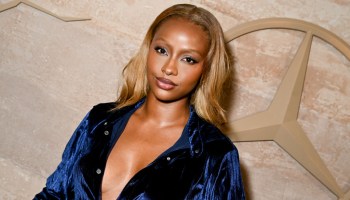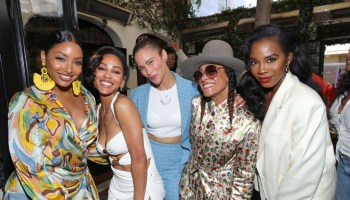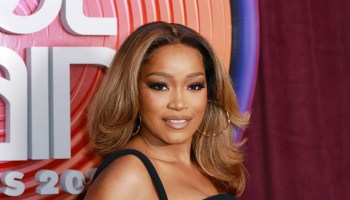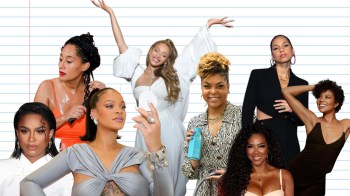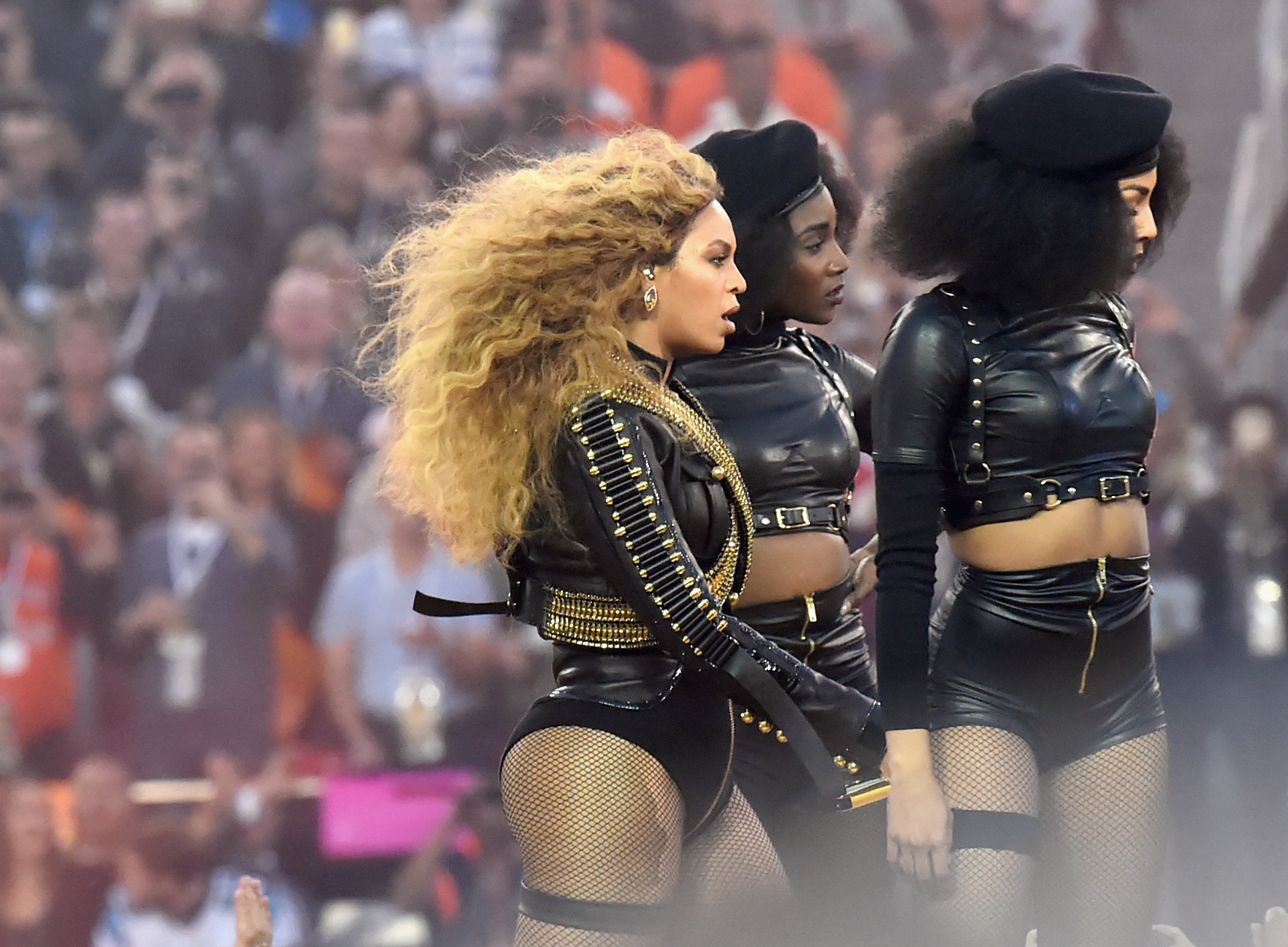
Source: Jeff Kravitz / Getty
*Editor’s Note: This post originally ran in February of this year, following the release of Beyonce’s hit single, ‘Formation’
Beyoncé is that bitch.
She dropped a video and single, “Formation,” on Saturday and “caused all this conversation.”
“Formation” is peak Yoncé . Impossible choreography. Hot beats. Gif-able moments. New pop culture totems (#hotsauce). Ass. It is also the artist’s most radical production to date, heavy with symbolism and challenges to prevailing narratives about race and gender.
“Black is beautiful” has always felt to me like a toothless platitude in the post-Black Power era. Many folks invested in alleged Black beauty only find it in the sort of respectable culture that mainstream America can easily digest.
With “Formation,” Beyoncé offers some particulars and bite to an oft-repeated banality. She is about that Black that makes white America and respectable Negroes uncomfortable: Nappy Black, ’Bama Black, queer Black, sexual Black and militant Black.
Black-ass noses are beautiful.
I like my Negro nose with Jackson 5 nostrils.
I like my baby hair with baby hair and afros.
We abide certain Black features, but we do not love them. How often—even in the enlightened 21st century—do you hear affirmation for strong, broad noses or hair that curls up tight like a pill bug? These lines in “Formation” may simply be Beyoncé shouting down Internet haters, who clown Jay’s nose and complain about Blue Ivy’s hair. Still, praising big ole Black noses is subversive. But it is a complicated message coming from a woman, who has built a career, in part, trading on having the “right” sort of Black beauty and has moved ever closer to the blonde, long-haired, slim-nosed ideal over the years.
Perhaps it is best here to not hate the player, but the game. The game being a music business where a Black woman with Michael Jackson’s old nose and an afro would never have a chance to be Beyoncé.
‘Bama is beautiful.
Black American culture is entwined with Southern culture. Most Black folks, if not living in the South, are but a generation or two removed. But when our parents and grandparents migrated up north and into cities, they (and their offspring) were expected to dust off the red clay and leave Southerness behind. Pick up your tongue and make your consonants crisper; trade collards for kale and hot sauce for sriracha. Get the country out.
Growing up in Gary, Indiana, with the children and grandchildren of Great Migrators–myself the product of Mississippi, Alabama and Kentucky–I never heard “‘Bama” used as anything but an insult. But, in “Formation,” Bey stands up for The Dirty.
My daddy Alabama, Momma Louisiana
You mix that Negro with that Creole make a Texas ‘Bama
…and unapologetic, lifelong countriness.
Earned all this money but they never take the country out me.
From its intro, featuring the late Messy Mya’s distinctive drawl (“What happened after New Awlins?”), the “Formation” video is an ode to the Black South–its people, style, history, landscape and language. Its low black culture, as well as its high. And hot sauce.
Empowered Black female sexuality is beautiful.
Plenty of folks see Beyonce’s in-your-face sexiness as performing for the male gaze. And it may be. But in a society where Black women are taught to hide their sexuality to avoid stereotype, a grown Black woman celebrating sex is also rebellious and refreshing.
When he fuck me good I take his ass to Red Lobster (Cause I slay).
In “Formation,” Beyoncé flips the script on traditional sexual power dynamics. Having sex for proximity to authority is not new, but placing a woman in the power position is. If a young man pleases the Queen, she might make him famous, or take him for a chopper ride or, at the very least, let him order the Admiral’s Feast as a lovely parting gift.
Being Black and queer is beautiful.
As Big Freedia says mid-“Formation,” Beyoncé did not come to play with you hoes.
“Formation” is queer as fuck–from young men “wining” to Freedia expressing her love for “collards and cornbread, bitch.” The video is an acknowledgment that the South (and beautiful Blackness) is as much about Bounce as Baptist churches.
Justice for Black Americans is beautiful.
The undercurrent of the “Formation” video is defiance from a Black American city whose citizens were left to drown and a people who are tired of being shot down in the street. Bey straddles a New Orleans police car. Water rises. A boy in a hoodie dances in front of riot police. “Stop killing us” flashes, written in graffiti. The cops throw their hands up.
Slay. And Slay.
Capitalism is beauti…wait.
You just might be a Black Bill Gates in the making.
I just might be a Black Bill Gates in the making.
Always stay gracious; best revenge is your paper.
The de rigeur “get money” message of today’s urban music, presented in “Formation,” feels out of place. It weakens the song and video’s progressivism and audacity.
Anyone who cares about urban poverty, environmental racism and police brutality needs to understand capitalism’s role in all three.
Racism is not just a social ill. It is baked into the American economy. It is a business. Capitalism is a root of the tragedy of Katrina and the biased American penal system and the continuing primacy of European beauty standards. And getting rich is not anarchy.
It is contradictions like this that leave folks debating Beyonce’s feminism and commitment to the cause. If your livelihood is, in part, reliant on the status quo–and if you are a wealthy entertainer, it is–can you be a true agitator?
Perhaps not. It may be impossible to be a rich and famous celebrity and a self-proclaimed feminist without contradiction. But then, it is impossible to be a not rich or famous feminist without contradiction. Life and values are messy that way.
What is undeniable, though, is that popular culture is powerful. It changes minds. An expression of unapologetic Blackness by Beyoncé, arguably the biggest star in the world, is important. Pointing out the beauty in the sort of Blackness society views with revulsion is revolutionary.
Tamara Winfrey-Harris is the author of ‘The Sisters Are Alright: Changing the Broken Narrative of Black Women in America.’
MORE ON HELLOBEAUTIFUL:
Black And Proud: How Beyoncé Used Fashion To Make A Powerful Political Statement
Beyoncé Got Me Feeling Really, Really Black
Beyoncé On Politically Charged #SB50 Performance: ‘I Wanted People To Feel Proud’ [WATCH]

